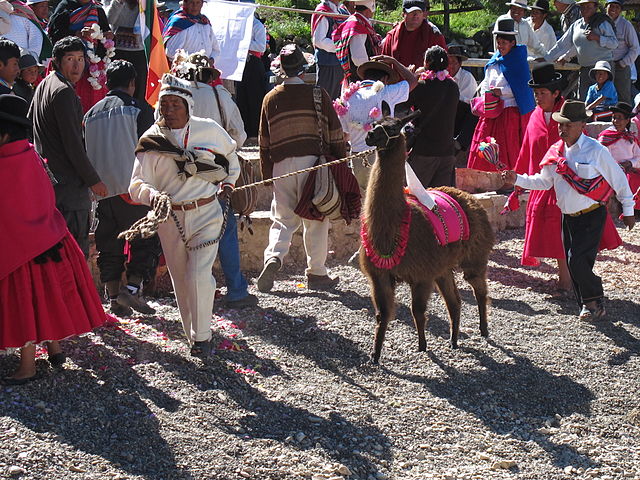Aymara is an Aymaran language spoken by the Aymara people of the Bolivian Andes. It is one of only a handful of Native American languages with over one million speakers. Aymara, along with Spanish and Quechua, is an official language in Bolivia and Peru. It is also spoken, to a much lesser extent, by some communities in northern Chile, where it is a recognized minority language.
Declaration of Independence of the United Provinces of South America (present-day Argentina) in Spanish and Aymara
Aymara translation of the Book of Mormon
"A Helping Hand in Time of Crisis," from the United States Information Agency, 1958
The Aymara or Aimara, people are an indigenous people in the Andes and Altiplano regions of South America. About 2.3 million live in northwest Argentina, Bolivia, Chile, and Peru. Their ancestors lived in the region for many centuries before becoming a subject people of the Inca Empire in the late 15th or early 16th century, and later during the Spanish conquest of Peru in the 16th century. With the Spanish American wars of independence (1810–1825), the Aymaras became subjects of the new nations of Bolivia and Peru. After the War of the Pacific (1879–1883), Chile annexed territory with the Aymara population.
Aymara people in Jujuy Province, c. 1870.
Aymara poncho, 17th or 18th century
Puerta del Sol, Tiwanaku, Bolivia
Traditional Aymara ceremony in Copacabana, on the border of Lake Titicaca in Bolivia







